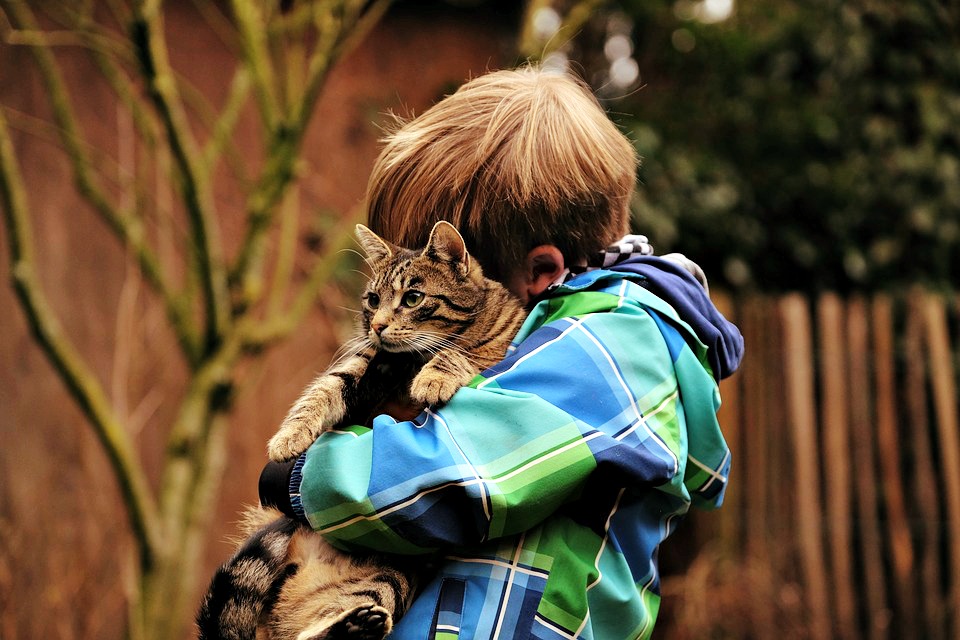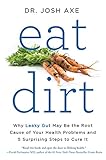The Dirt Life (With Pets) Is Actually Better for Childhood Immunity and Mental Resiliency
A “non-sterile” life is the way to be strong in the face of stress, new results show…
By Anna Hunt
New research shows that children raised around animals and dusty, bacteria-filled environments grow up to be more resilient to stress. When the immune system responds effectively to stress, the result is a decreased risk of mental illness. The Proceedings of the National Academy of Sciences (PNAS) journal published the findings from this research.
Sterile Environment Isn’t Necessarily Healthy
Researchers from the University of Ulm in Germany and the University of Colorado Boulder (CU Boulder) examined if overly-sterile environments can result in health problems.
Professor Stefan Reber led the study at University of Ulm. His team recruited 40 German men, ages 20-40. Half grew up on a farm with animals. The other half grew up in cities and without pets.
Widget not in any sidebars
In the experiment, the researchers put each test subject under stress. First, they asked the participants to make a public speech in front of stone-faced observers. Additionally, each subject had to solve a difficult math problem under time pressure.
Subsequently, the researchers collected blood and saliva from each subject. Collection was made five, 15, 60, 90 and 150 minutes afterwards, as well as before the tests.
The tests showed that subjects who grew up in the city did not respond as well to the stressors as their rural counterparts. CU Boulder reports:
Those who grew up in cities had significantly higher levels of immune system components called peripheral blood mononuclear cells (PBMCs) after the stressful experience.
They also showed prolonged elevation of the inflammatory compound interleukin 6 and muted activation of the anti-inflammatory compound interleukin 10.
Researchers have linked this type of exaggerated inflammatory response with development of depression and post-traumatic stress disorder later in life.
Co-author Christopher Lowry, a professor of integrative physiology at CU Boulder, stated:
People who grew up in an urban environment had a much-exaggerated induction of the inflammatory immune response to the stressor, and it persisted throughout the two-hour period.
Furthermore, the researchers discovered that the city subjects were not aware of their response to stress. In fact, they reported feeling less-stressed than the subjects who grew up in a rural setting. Lowry added:
This exaggerated inflammatory response is like a sleeping giant that they are completely unaware of.
Dirt and Animals May be Good For Children’s Mental Health
The research from CU Boulder also addressed the impact of raising children around animals. They showed that having pets might be good for mental health, not just physical health. Lowry states:
It has already been very well documented that exposure to pets and rural environments during development is beneficial in terms of reducing risk of asthma and allergies later in life. This study moves the conversation forward by showing for the first time in humans that these same exposures are likely to be important for mental health.
Past research shows that a person’s immune response to stress develops in early life. Importantly, it seems that it is affected by our microbial environment. Lowry and his team propose that our exposure to fewer microorganismas in the urban setting makes us more vulnerable to psychiatric disorders. Lowry said:
If you are not exposed to these types of organisms, then your immune system doesn’t develop a balance between inflammatory and anti-inflammatory forces, and you can develop a chronic, low-grade inflammation and exaggerated immune reactivity that makes you vulnerable to allergy, autoimmune disease and, we propose, psychiatric disorders.
More than 50 percent of the world’s population now lives in a urban areas. Even in the city, allowing kids to play outside, especially in nature, may be best for brain development in children. Other research has show that, additionally, time at the beach improves mental health.
Anna Hunt is writer, yoga instructor, mother of three, and lover of healthy food. She’s the founder of Awareness Junkie, an online community paving the way for better health and personal transformation. She’s also the co-editor at Waking Times, where she writes about optimal health and wellness. Anna spent 6 years in Costa Rica as a teacher of Hatha and therapeutic yoga. She now teaches at Asheville Yoga Center and is pursuing her Yoga Therapy certification. During her free time, you’ll find her on the mat or in the kitchen, creating new kid-friendly superfood recipes.
Sources:
https://www.colorado.edu/today/2018/04/30/how-growing-pets-dust-may-boost-mental-health
http://www.pnas.org/content/early/2018/04/24/1719866115
This article (A Pet-Free, City Upbringing May be Harmful to Children’s Health) was originally created and published by Waking Times and is published here under a Creative Commons license with attribution to Anna Hunt and WakingTimes.com. It may be re-posted freely with proper attribution, author bio, and this copyright statement.
Disclaimer: This article is not intended to provide medical advice, diagnosis or treatment. Views expressed here do not necessarily reflect those of Waking Times or its staff.
Like Waking Times on Facebook. Follow Waking Times on Twitter.





